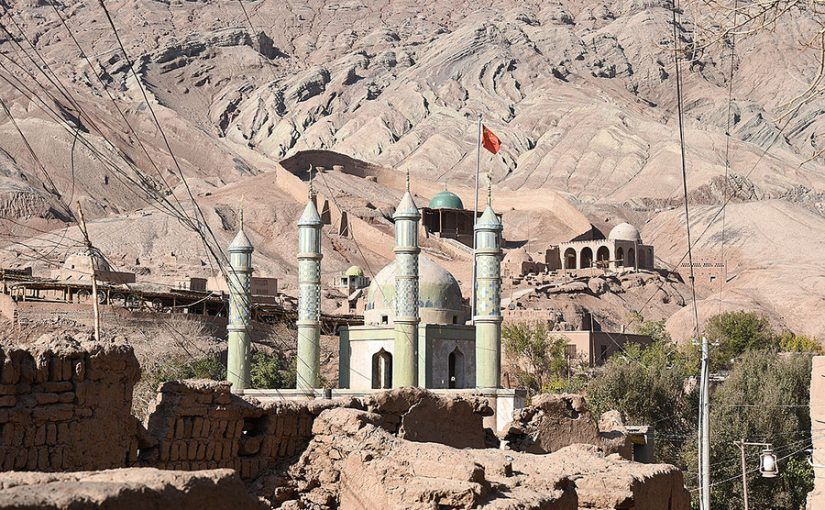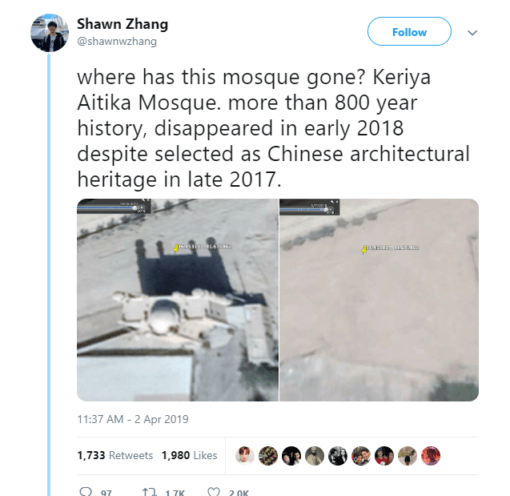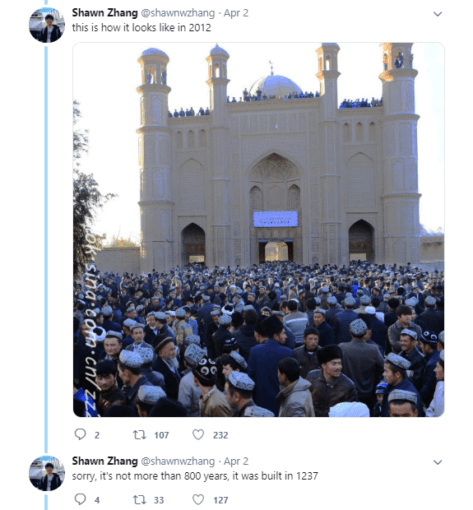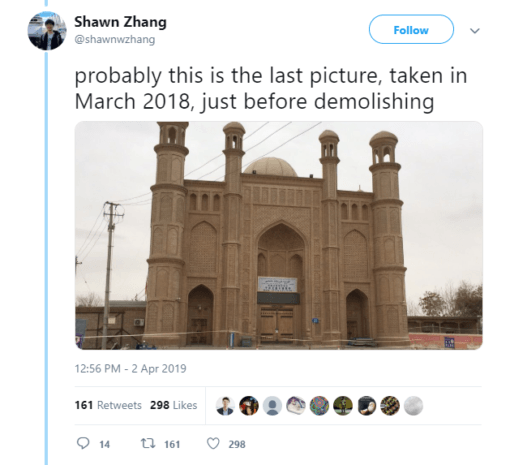
Destruction of Mosques in China is left completely ignored
Under the Guise of Public Safety, China Demolishes Thousands of Mosques



The Keriya Mosque in Southern Xinjiang was originally built in 1237, almost 800 years ago. It underwent major renovations in the 80’s and 90’s and in 2016 it was photographed as a dazzling site amidst thousands of worshippers. In late 2017, it was listed as a piece of Chinese architectural heritage. Yet today, satellite imagery reveals the site is nothing more than a levelled plane.
This former Mosque is only an example of the hundreds of other Mosques in China being demolished at the hands of a ‘bulldozer state’, relentless in its bid to erase religion.
RFA Uyghur reports that in 2017 alone, approximately 5000 mosques were demolished by Chinese authorities. One reporter who visited the eastern region of Kumul in 2017, learnt that approximately 200 of the 800 Mosques in the region had already been destroyed, while a further 500 were to be destroyed the following year.
Government policy has also required Mosques to fly the Chinese flag atop their buildings and remove any Islamic symbolism. Remaining mosques are often pictured with heavy surveillance to monitor religious activities.
The destruction of Mosques is only part of the suppression Muslims living in China face under the rule of President Xi Jinping, in his agenda to ‘sinicise’ religion and the ethnicities of minorities. Uyghur Muslims living in the Western Chinese Province of Xinjiang, particularly face the most extreme forms of government pressure, including strict surveillance and mass imprisonment.
A United Nations Human rights panel estimates that approximately one million Uyghur Muslims are imprisoned in Chinese internment camps. While there are approximately two million others held in so-called ‘reeducation centres’ for cultural and political indoctrination.
An online study has collected the locations of approximately 66 of these concentration camps scattered throughout Xinjiang.
According to Human Rights Watch,Muslims are forced to renounce their religion and proclaim their allegiance to the China within these camps.
Government surveillance includes constant monitoring and citizen scoring. Uyghurs are often restricted from worship and outwardly expressing their faith. Muslims are persecuted for using Islamic greetings, possessing halal food, refusing alcohol or for having long beard and headscarves. Kindergarten children are also interrogated on the religious observance of their parents.
More recently the Government has also began to crack down on Hui Muslims living in China, signalling further suppression of the Islamic faith within China.
Source: One Path Network

